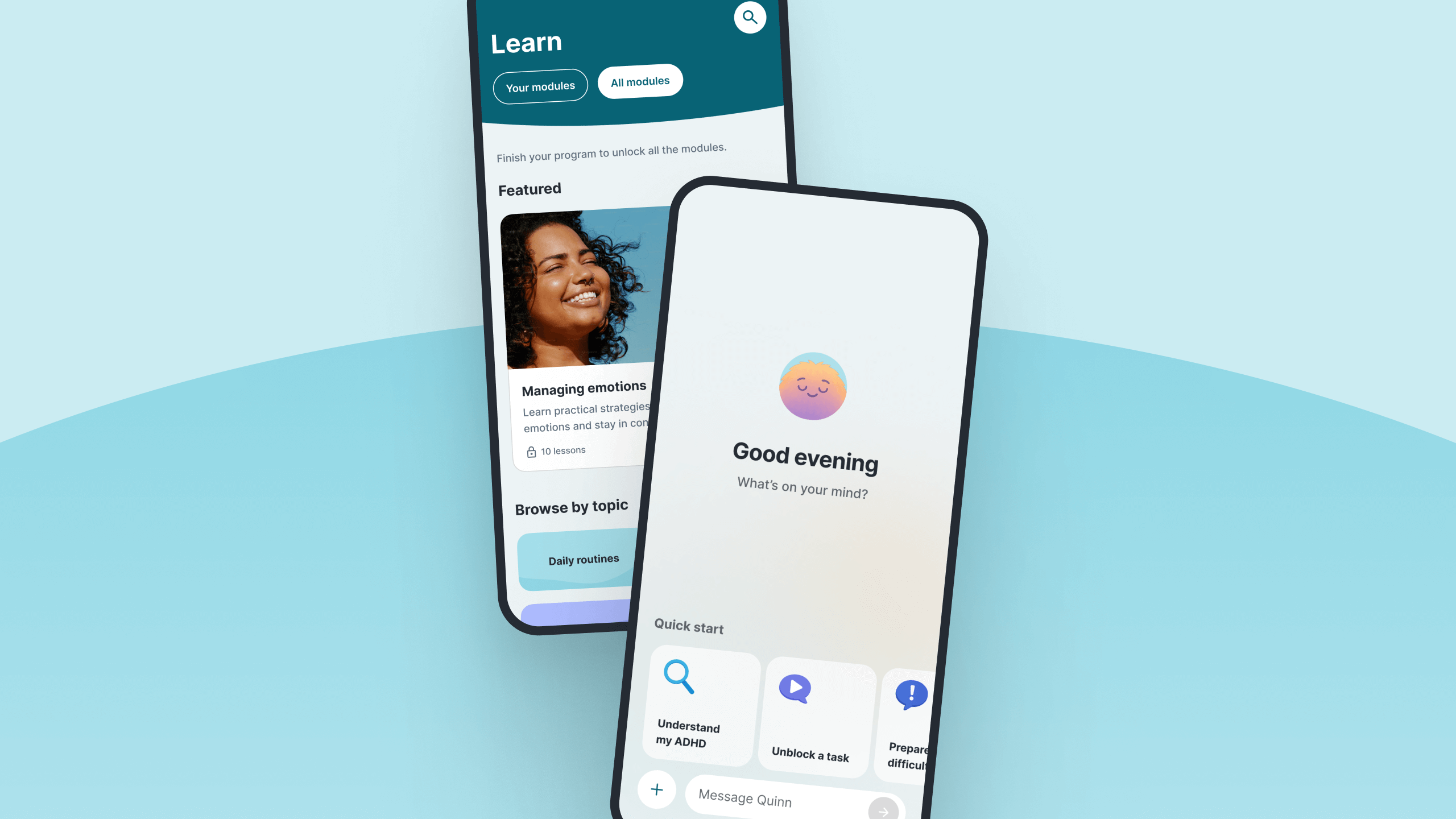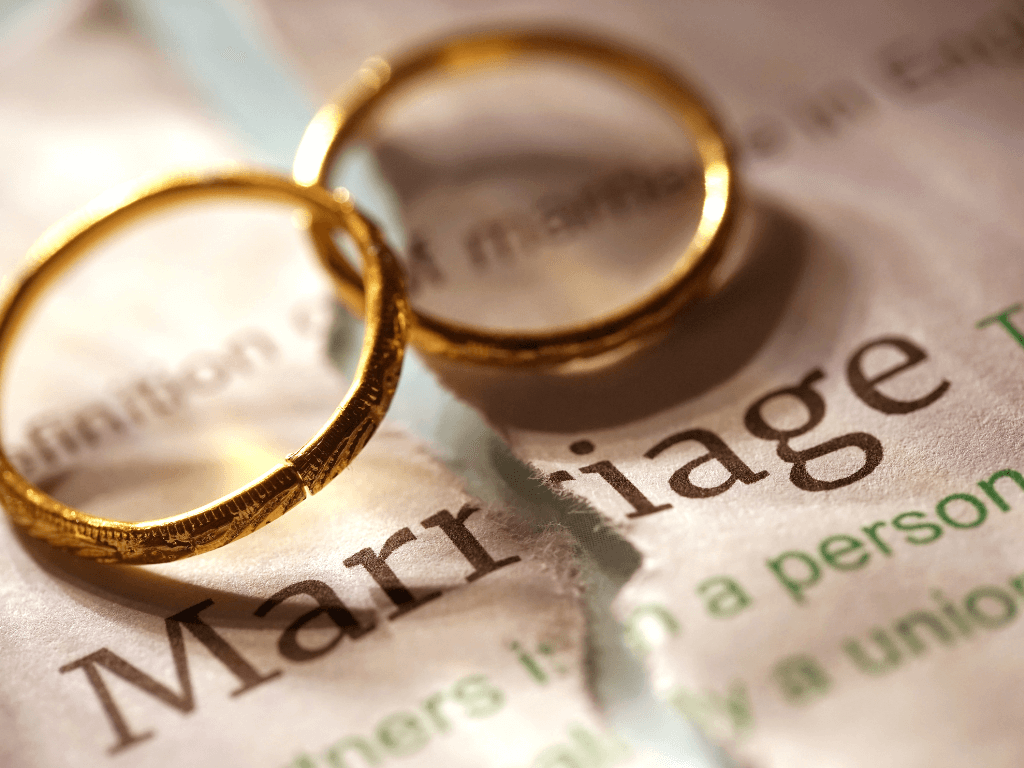When people with ADHD fall in love, we often fall hard.
Our spontaneity, expressiveness, and emotional intensity are strengths at the beginning of a relationship where romance rules all. But those same traits can make progressing relationships to the next step a little tricky.
So how can people with ADHD successfully build harmonious relationships? Here are some of our best tips for embracing and working with your ADHD to strengthen your relationship.
How to strengthen romantic relationships when one or both partners have ADHD

1. Reevaluate your relationship expectations
As we grow up, we’re exposed to social norms that show us what everyone thinks a “good” and "healthy" relationship should look like. This shapes how we expect ourselves and partners to behave. But these may not reflect what you actually want or need from a relationship.
People with ADHD often navigate the world to the beat of their own drum, and romantic relationships are no exception.
Spend some intentional time talking with your partner about what really matters to you in your relationship and why. Pay attention to expectations you both have and reflect on whether they are actually important. Something you've viewed as a “relationship staple” because society told you it should be (like texting every day, for example) may not actually be realistic for you.
Remember: your relationship doesn’t need to impress other people — it should satisfy you and your partner.
2. Figure out how to work with your brain — not against it
When you talk to your partner about what you both want, brainstorm different ways you could achieve your desired outcomes. It may also be helpful to talk openly about how your ADHD might manifest and interfere.
For example, while going out for dinner may seem romantic in theory, some ADHDers find it to be an overwhelming distraction because of all the people and noises in a public setting. You may find it easier to connect at home — and that's ok.
Try browsing different resources with your partner and identify settings that could work for your relationship. That way, you'll have a list of ideas to draw from depending on the situation (and enough novelty to keep you engaged).
3. Manage the connection between stimulation and conflict
The ADHD brain's desire for newness can cause us to pick fights when we’re bored, unintentionally creating conflict to satisfy our demand for stimulation. Conversely, getting overstimulated can also push us to a breaking point, resulting in emotional overload and emotional outbursts.
Learning to recognize your triggers for overstimulation and understimulation (and when they are influencing your behavior) is key for reducing unnecessary conflict, hurt feelings, and misunderstandings in your relationship.
For more information on the connection between ADHD and sensory processing (e.g. understimulation and overstimulation), check out this Inflow article.
4. Resist projecting intent onto ADHD behaviors
Whether you have ADHD, an ADHD partner, or both, you’re likely to experience some derailed plans, unfocused conversations, and incomplete chores. If you tend to "read between the lines" in relationships, it can be tempting to make emotional assumptions about what these behaviors mean, rather than identifying them as traits or symptoms of ADHD.
Because ADHD manifests in different ways for everyone, this can still create conflict even when both partners have ADHD.
Taking a constructive and collaborative approach to understanding your ADHD can make your relationship stronger. Instead of getting stuck in a cycle of blame, frustration, and resentment, try to identify pragmatic solutions that focus on the problem, rather than the person.
If you have ADHD and your partner does not, make it clear that ADHD-related challenges do not reflect the way you feel about them. It's always a good idea to encourage non-ADHD partners to learn more about ADHD symptoms and how they can use that information to be a good partner to you.
5. Address your internalized shame
As kids, many ADHDers were scolded for behaviors related to their ADHD. More often than not, this continues into adulthood.
This can cause insecurity and make us ultra sensitive to perceived criticism, which can escalate conflict in relationships. Our partners ask us to clean up the kitchen and we tend to hear “you’re always so messy”- and react accordingly.
Internalized shame can also cause us to take it personally when a partner is late or disorganized, as we’ve been taught to associate that behavior with a lack of care.
This is especially complicated when both partners have ADHD, as you may end up projecting the same judgment you received back onto them.
Spending time processing the grief and internalized ableism that often accompanies ADHD diagnoses will help you to be kinder to yourself, and get out of defensive and reactive patterns.
Know your worth and when to move on
All of this advice is based on the assumption that your relationship is healthy, respectful, and safe. It’s worth noting that people with ADHD are more susceptible to abuse, such as gaslighting. Your ADHD does not make you unworthy of love.
Regardless of your partner's neurotype, you deserve a partner that displays some level of empathy and is willing to work with you on managing your ADHD.
You should never feel unsafe — emotionally or physically — in your relationship. Keep an eye out for red flags.
There is never justification for abuse.
Embrace ADHD in your relationship
You don’t need to hide or fight your ADHD to have a successful and rewarding relationship.
Instead, spend that energy on embracing the things that come naturally to you — like surprising your partner, making them laugh, and finding new activities to do together.
You’ve got this!









